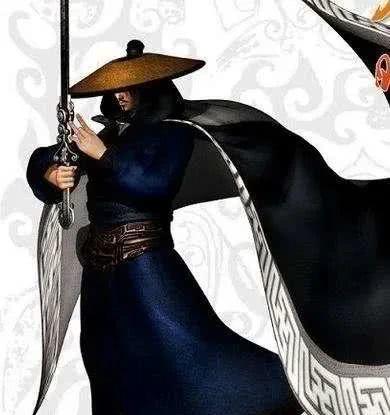This article is approximately 1172 words
Reading required
3 min
We know that the Warring States was an era of controversy among a hundred schools of thought, in which The Confucians represented by Confucius and the Taoists represented by Lao Tzu all had a profound impact on future generations. However, there was a school that had a great influence at the time, but it eventually disappeared. This school is the Mo family.

Mohism
The Mo family was once very brilliant, they preached the ideas of simultaneous love, non-aggression, and tianzhi, advocated the idea that everyone is equal and mutually loving, opposing war, and actively grasping the laws of nature. At one time, it was called "the xianxue of the world" by Han Feizi and Confucianism. The Ink Classic can be regarded as the first scientific enlightenment masterpiece in Chinese history, and its description of the bar principle predates Archimedes by more than 200 years, and it also has a strict definition of geometry. However, unfortunately, with the implementation of the Han Dynasty's policy of "deposing hundreds of families and respecting Confucianism alone", the Mo family gradually declined, and the Ink Classic failed to trigger a scientific revolution similar to that of the West.
According to the interpretation of the Spirit Hermitism
After the Han Dynasty, the Mo family basically disappeared in China, but the Mo family did not really disappear. People still find some clues in later generations.
The founder of the Mo family, MoZi, had a disciple named Xu Wei, And Xu Weak had a fifth grandson named Xu Fu, and there is a folk saying that the disciples of the Mo family founded the Lingyin Sect, which specialized in secretly propagating the Ideas of the Mo Family. The head of the Lingyin Sect is called the Juzi, and below the Juzi is the Lingzi. Xu Fu is one of the Lingzi.
We know that Xu Fu later became the project manager of the Qin Shi Huang Immortal Medicine Troupe. The composition of this team is more mysterious, and they are all virgin boys and girls selected by Xu Fu. If Xu Fu is the lingzi of the Mo family, then this group of virgin boys and girls is likely to be the followers of the Mo family.
Xu Fu
The main responsibility of Xu Fu's team is to find immortal medicine for the investor Qin Shi Huang. The current mainstream view is that after Xu Fu got the angel round funds, he first stopped in Japan, bringing the civilization of the Central Plains to the Japanese who were still primitive, and xu Futuan who remained in Japan called himself Qin. There are many monuments and books that record Xu Fu throughout Japan, and many Japanese people believe that they are xu fu's descendants, and there is even a saying that Xu Fu is actually the first generation of Japan's emperor, Emperor Shenwu.
Some reports can be retrieved in CNKI that in 1982, a European and American expedition found a Han village with a history of more than 2,000 years in the dense mountain forests of Venezuela in South America, and the villagers still wore Chinese Qin and Han costumes, spoke Chinese accents, wrote Chinese characters, and ate rice. They claimed to be the descendants of the boys and girls of the Xu Fuxian Medicine Troupe. This can be found in some journals and books in the 90s, but it is relatively understated, and its reliability cannot be guaranteed. But it still gives us a possible clue.
Didn't you say you went to Japan? How did you pull out a Venezuela again?
The late scholar Professor Luo Qixiang has a book called "Folk Anecdotes of the Mo Family's Religious Inheritance", according to which Xu Fu is indeed inextricably linked to the Mo family.
As for the Han villages in South America, there is such a possibility, according to the "Historical Records", Xu Fu once went to sea twice, and after the first time he went out, he came back and said that there were big fish in the sea blocking the way to Xiandao.
Qin Shi Huang believed it, gave him a large sum of money, and equipped him with many technicians and weapons. This time, Xu Fu took a group of inkers, of course, he never returned, he went overseas to find a place, dreaming of building a society that was both love and non-aggression. This Han Chinese village is their descendant.
Of course, the above is only a possibility speculated by some scholars, and there is no conclusive evidence that Xu Fu has indeed been to Japan or South America. Let's look forward to new discoveries in archaeology.
*Graphic source network, copyright belongs to the original author.